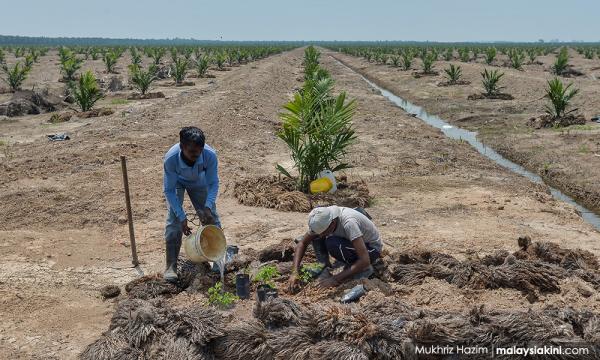Palm oil, as the most cost-effective oil would continue to play a pivotal role, says Primary Industries Minister Teresa Kok.
“It is hard to imagine a scenario wherein it can be replaced by other oils including coconut for its pricing, functionality and versatility,” she said.
She said the good thing about palm oil was that global supply and demand dynamics were in a very tightly balanced platform.
“Coupled to this we have an ever-growing global population especially in developing countries that demands more oils and fats for food consumption.
“We simply need to pay greater attention to current cultivation and processing practices. For smallholders, replanting with higher oil yielding varieties is a better choice forward,” she said in a statement.
She said this in response to a quote, “No future for palm oil, but coconuts is a possibility” by Council of Eminent Persons chairperson Daim Zainuddin in Malay Mail yesterday.
She said there was good reason why palm oil remained as Malaysia’s best agri-commodity. The industry contributed 4.5 percent to the gross domestic product and RM67.5 billion or 52.8 percent of export earnings to the country in 2018.
The minister also opined that both oil palm and coconut cultivation, which are highly appropriate for Malaysia’s climatic conditions, have their respective roles in the environment.
When properly managed, these could prove complementary to each other in many ways, she added.
The future for palm oil, according to her, is through sustainable production traced throughout its supply chain.
“I would also be bold to suggest that such sustainability standards would also likely be demanded for coconut oil in the future.
“I would thus disagree with the quote from Tun Daim but rather say that there are various opportunities and good prospects for both palm and coconut in our country, provided we sustainably manage these supply chains”.
Kok said her ministry had been encouraging smallholders to practise intercropping with other crops that fetch high prices. These could include pineapples, coconuts, vegetables, as well as animal husbandry to diversify their income sources.
“They won’t be so affected when the palm oil price is low. Malaysian coconut cultivation has over the years being neglected and it is common for us to drive along coastal roads to see such neglect in rural communities.
“In agreeing partially with Tun Daim, I would like to propose coconut cultivation in such areas be revitalised using high yielding short dwarf coconut palms”.
She also drew attention to the fact that the palm oil industry also produces palm kernel oil from the kernel of the oil palm fruit.
“This for all purposes duplicates the functionality of coconut oil and is highly in demand. Should Malaysia venture into a targeted coconut oil cultivation programme, I can assure you that it will also be welcomed by our palm oleochemical industries.
“The bottom line to these suggestions is that we can actually make both crops work for our smallholders and economy. It could simply be a question of maximising our land use patterns and see no reason to aggressively switch away from oil palm cultivation. The demand for the oil is quite assured,” she stressed.
- Bernama


